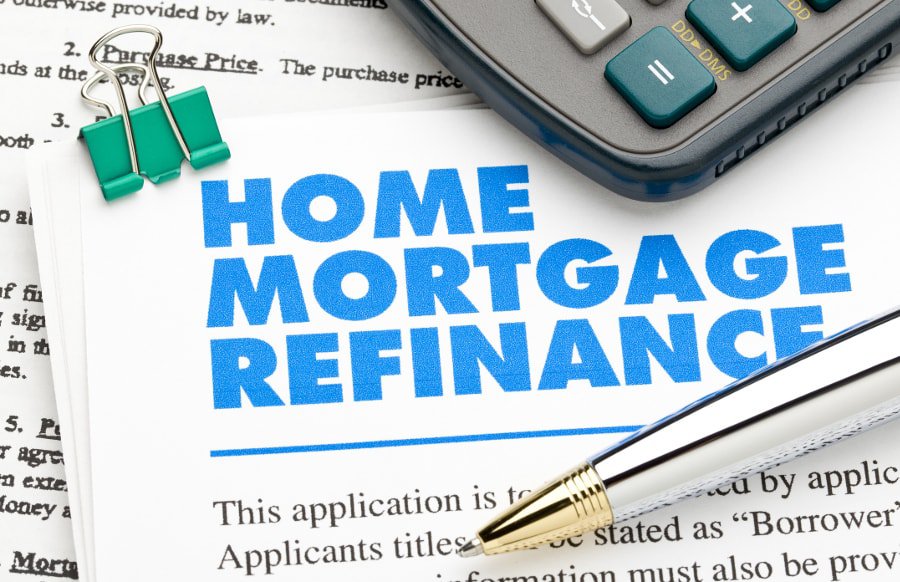Costs of Refinancing in Canada: Penalties and Fees

Introduction
Refinancing your home is the process of replacing the existing mortgage on it with a new one. This can be done to obtain a lower interest rate on the mortgage, shorten the term, adjust the pricing from variable rate to fixed (or vice versa) and/or tap into some of the equity you have built up in your home through the mortgage debt repayments you have made over the years. Thousands of borrowers opt to refinance their mortgages every year for any one or more of the aforementioned reasons. However, there may be some costs involved with the process that you should be aware of before deciding to refinance your mortgage. This article offers a peek into some of these costs to help you decide whether refinancing your mortgage would be the right decision for your financial goals.
Types of Refinancing
In Canada, borrowers can access up to 80% and in some cases up to 85% of their home’s value less the outstanding amount on their mortgage. In the event where a homeowner is looking to borrow equity in excess of their current mortgage, then they will be able to access up to 80% or 85% or the value of their property less the current mortgage amount.
For example, for a home worth $500,000 with an outstanding mortgage amount of $100,000, the equity that can be refinanced in the form of a home equity loan, HELOC (home equity line of credit), or a second mortgage is ($500,000 * 80%) - $100,000 = $300,000.
There are also two types of refinancing i.e. refinancing that occurs within the mortgage term, and refinancing that occurs at the end of the term. Refinancing within the mortgage term allows borrowers to extract some of the available equity value from their homes in the case of a HELOC or home equity loan, and can come with significant additional costs. On the other hand, refinancing at the end of the term would enable a homeowner to take out equity from the home, to pay down more of the original mortgage amount, or simply refinance at a better rate. Refinancing a mortgage at the end of the term typically comes with minimal costs, if any at all.
Depending on which type of refinancing you choose, a different set of fees may apply as illustrated below.
Mortgage Prepayment Penalty
If you are refinancing within the term of the mortgage, a prepayment penalty may be applied. For a fixed rate mortgage, this prepayment penalty is the LARGER of: (i) 3 months of interest payments, or (ii) the interest rate differential (IRD). You should take note that the calculation of the IRD would depend on a variety of factors and varies from lender to lender. For variable rate mortgages, the prepayment penalty is 3 months of interest. These prepayment penalty does not have to be paid if you are refinancing the mortgage at the end of the term.
Mortgage Discharge Fee
This is typically an administrative fee paid to the existing lender when a mortgage is discharged from that lender and paid in full regardless of whether you are switching your mortgage to a new lender, or simply paying off your mortgage to become mortgage-free. The amount of this fee is at the discretion of the lenders and stipulated in the mortgage contract. In Canada, the fee generally ranges from $200 to $500 with a top-end of approximately $1,000.
Legal Fees
When refinancing a mortgage, most borrowers will have to engage the services of a real estate lawyer who will review the mortgage contract, register the new mortgage, and run a title search to validate that no other liens (legal right of another creditor on the piece of property) have been made against that property. While in some cases the new lender may pay the legal fees for you, the typical cost of this whole process is $800 to $1,200.
Mortgage Registration Fee
During the setup of a new loan, a lender will obtain security by registering the security charge against your property that enables them to gain possession in the event of a power of sale. These charges generally fall under two types of categories: standard charge mortgage and collateral charge mortgage. Typically, a mortgage registration fee is around $70 to $100.
Appraisal Fee
Some lenders may require the borrower to conduct a home appraisal and inspection to determine the precise Loan to Value ratio (LTV). This appraisal generally costs between $300 to $500. In some cases, if you have an appraisal for your home is still relatively recent, or if you recently bought your home, this requirement can be waived at the discretion of the lender. However, if you believe that your home has risen in value since the last time the appraisal was completed, or since you purchased your property, then it could be in your best interest to have it an appraisal completed to tap into a larger amount of equity.
Downsides of Refinancing
While there are plenty of financial and strategic reasons for a borrower to pursue refinancing their property, there are some downsides to consider as well:
(i) High fees: As mentioned throughout this article, there are several fees that have to be paid over the course of a refinancing, most of which occur upfront before you have the opportunity to gain the cost savings. Therefore, when weighing the refinancing decision, it is important to get a good handle of all costs and penalty fees involved to ensure that the savings would more than enough to offset them.
(ii) Qualification: Banks today are a lot more cautious when approving refinancing of mortgage loans after the advent of the 2008 housing crisis. Especially for people with less than excellent credit scores, qualification can be challenging, or the borrower may end up paying high rates, thereby reducing the financial benefits of a refinancing.
Overall, refinancing is a decision that must be carefully evaluated to ensure that it is financially advantageous to you over the long-term. In order to do that, do your research by shopping around for the right mortgage terms and rates, comparing offers from trusted lenders, and fully calculating all costs involved before taking a final call.





